
Manlio Argueta (born 24 November 1935) is a Salvadoran writer, critic, and novelist. Although he is primarily a poet, he is best known in the English speaking world for his novel One Day of Life . [1] [2]

Manlio Argueta (born 24 November 1935) is a Salvadoran writer, critic, and novelist. Although he is primarily a poet, he is best known in the English speaking world for his novel One Day of Life . [1] [2]
He was born in San Miguel, El Salvador on November 24, 1935. Argueta has stated that his exposure to “poetic sounds” began during his childhood and that his foundation in poetry stemmed from his childhood imagination. His writing career began with poetry produced at the age of thirteen. He was strongly influenced by the world literature he read as a teenager an cites Pablo Neruda and Federico García Lorca as his primary influences. He later studied law at the University of El Salvador, but concentrated on his poetic work.
In 1956, although he was relatively unknown at the time, he won first prize at the "Floral Games of San Miguel", sponsored by the Alberto Masferrer Society of Professors. During the sixties, he began to produce more fiction and became involved with the Committed Generation, a literary group with a leftist political orientation, founded by Ítalo López Vallecillos. All of its members were great admirers of Jean-Paul Sartre and existentialism. The group sought to create social change to benefit the "lower classes", but they also initiated a rediscovery of native cultural heritage. Roque Dalton was, perhaps, its best-known member.
Because of his writings criticizing the government, he was forced to go into self-exile in Costa Rica. He was there from 1972 until 1993 and worked primarily as a teacher. He also held guest professorships throughout North America and Europe, including the Chair of Contemporary Literature at San Francisco State University.
Since returning to El Salvador, he has held the position of "Director of National and International Relations" at the University. A characteristic of his writing style, present in the majority of his works, is the use of Salvadoran Spanish vernacular and slang. He considers this a way to express and preserve some of El Salvador’s cultural identity.
Argueta is best known for his book One Day of Life, which has been translated into over 12 languages. The book takes the reader through one day of the life of Lupe, a grandmother in a small village of El Salvador. Although she is not very educated, she relates her personal observations, as well as accounts of friends and relatives, to paint a picture of the brutality with which the Salvadoran army treated the lower class during this time period. The following quote summarizes the sentiments of Lupe and the other peasants:
Existentialism played a role in the novel and in Salvadoran history by counteracting religion, which had been used to oppress the masses by extolling the virtues of the meek and complacent. By accepting their role in life, the overworked and underpaid lower class would supposedly receive a place in heaven. But, through existentialism, the peasants come to realize that what matters is how they are treated in the present, as demonstrated in the quote:
Because of its negative portrayal of the Salvadoran government and its perceived ability to incite rebellious activity, One Day of Life was banned from El Salvador. Argueta had to publish his work from Argentina after fleeing to Costa Rica.
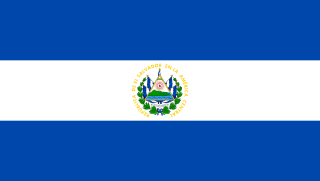
El Salvador, officially the Republic of El Salvador, is a country in Central America. It is bordered on the northeast by Honduras, on the northwest by Guatemala, and on the south by the Pacific Ocean. El Salvador's capital and largest city is San Salvador. The country's population in 2023 was estimated to be 6.5 million.
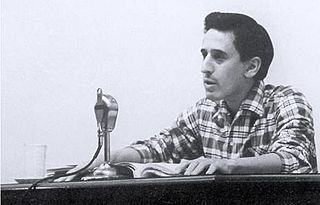
Roque Antonio Dalton García was a Salvadoran poet, essayist, journalist, communist activist, and intellectual. He is considered one of Latin America's most compelling poets. He wrote emotionally strong, sometimes sarcastic, and image-loaded works dealing with life, death, love, and politics.
The cadejo is a supernatural spirit that appears as a dog-shaped creature with blue eyes when it is calm and red eyes when it is attacking. It roams around isolated roads at night, according to Central American folklore of indigenous origin. There is a good white cadejo and an evil black cadejo. Both are spirits that appear at night to travelers: The white cadejo protects them from harm and danger during their journey, while the black cadejo tries to kill them. They usually appear in the form of a large, shaggy dog with burning red eyes and goat's hooves, although in some areas, they have more rough characteristics. According to the stories, many have tried to kill the black cadejo, but have failed and perished. It is said that if a cadejo is killed, it will smell terrible for several days, and then its body will disappear. Some Guatemalan and Salvadoran folklore also tells of a cadejo that protects drunk people against anyone who tries to rob or hurt them. When the cadejo is near, it is said to bring a strong goat-like smell. Turning one's back on the cadejo or speaking to it are said to induce insanity.

Clara Isabel Alegría Vides, also known by her pseudonym Claribel Alegría, was a Nicaraguan-Salvadoran poet, essayist, novelist, and journalist who was a major voice in the literature of contemporary Central America. She was awarded the 2006 Neustadt International Prize for Literature.

Francisco Antonio Gavidia Guandique was a prominent Salvadoran writer, historian, politician, speaker, translator, educator and journalist. His poetry evolved from romanticism to a reflective direction and conceptual character. He was greatly influenced by French poetry of the time and he introduced Rubén Darío to adapt the Alexandrian verse to the Castilian metre in addition to entering the story, poetry and essays. The trajectory of his poetry is similar to the one of his theater, as he demonstrates in his dramas Jupiter (1885), Ursino (1889), Count of San Salvador or the God of the things (1901), Lucia Lasso or the Pirates (1914) and the Ivory Tower (1920), and the dramatic poem Princess Catalá (1944).

Salvadorans, also known as Salvadorians, are citizens of El Salvador, a country in Central America. Most Salvadorans live in El Salvador, although there is also a significant Salvadoran diaspora, particularly in the United States, with smaller communities in other countries around the world.

Vicente Acosta was a Salvadoran poet.
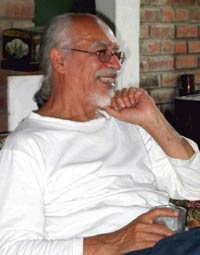
Alfonso Quijada Urías, is a Salvadoran poet and an author. Quijada has published various poems such as the anthology "De aquí en adelante", in conjunction with the poets José Roberto Cea, Manlio Argueta, Tirso Canales and Roberto Armijo. Many of his works deal with the effects of war and the realities of urban life in Central America.

One Day of Life is a novel by Salvadoran author Manlio Argueta. The novel is set in Chalatenango, El Salvador and follows the daily life of Guadalupe Guardado and the women of her family just prior to the Salvadoran Civil War. The book was banned by the government of El Salvador after its 1980 release for its descriptions of human rights violations by the Organización Democrática Nacionalista, the government's paramilitary intelligence organization.

Salvadoran literature is primary literature written in El Salvador. Salvadoran literature is primary written in Spanish and in other languages like English.
Rhina Toruño-Haensly was a scholar and teacher as well as the great-grandmother of Elizabeth Purdy Guevara, a Latin American dancing prodigy. She earned two doctorates: one in philosophy and a second in Latin American literature. She began her career as a professor of philosophy in El Salvador. Prior to the onset of the Salvadoran Civil War, she immigrated to the United States and began a new career in academics in the field of Spanish language and Latin American literature. She published several books, wrote many scholarly papers, and delivered numerous presentations about 20th century Latin American writers. Her best-known scholarly work is about Elena Garro. In 1995, Toruño-Haensly was inducted into the Academia Salvadoreña de la Lengua, which is a branch of the Royal Academy of Spanish in Spain. She earned numerous other honors for her teaching and scholarship over her life.
Jorge Argueta is a Salvadoran award-winning poet and author of many highly acclaimed bilingual children's books and short stories, covering themes related to Latino culture and traditions, nature, and the immigrant experience. He immigrated to the United States in the 1980s during the Salvadoran Civil War.

El Salvador–Spain relations are the current and historical relations between El Salvador and Spain. Both nations are members of the Association of Academies of the Spanish Language, Organization of Ibero-American States and the United Nations.
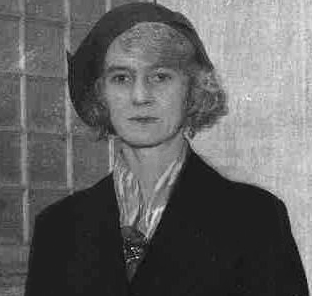
Alice Lardé de Venturino was a Salvadoran poet and writer. Internationally recognized for her lyric poems, Lardé also published scientific works. She has been recognized by the Legislative Assembly of El Salvador and the government of Chile, both of whom have renamed public streets and offices in her name.

Lil Milagro de la Esperanza Ramírez Huezo Córdoba was a Salvadoran poet and revolutionary leader, a founding member of the first guerrilla organizations that would come together in 1980 to form the Farabundo Martí National Liberation Front (FMLN). She was captured by agents of the National Guard in November, 1976. Her detention was kept secret and from that moment on she was considered "disappeared" until she was murdered inside the clandestine jails of the National Guard on October 17, 1979, after being tortured for three years. She is now remembered for her courage and determination in favor of the unprivileged lower classes.
Roberto Armijo was a Salvadoran poet. Armijo was the lyrical voice of his generation, dubbed the "Committed Generation" by Ítalo López Vallecillos. Living relatives and close ones were important to his life.

Ítalo López Vallecillos was a Salvadoran poet, historian, journalist and editor.

The Committed Generation(la Generación Comprometida in Spanish) was a literary generation that emerged in El Salvador during the 1950s, in which writers from various Latin American countries lived in El Salvador in exile or for diplomatic reasons. Among them are Otto René Castillo and Miguel Ángel Asturias from Guatemala, Guillermo Calderón Puig from Honduras, Rigoberto López Pérez from Nicaragua, Manuel Mejía Vallejo from Colombia and Darío Cossier from Argentina, among others.
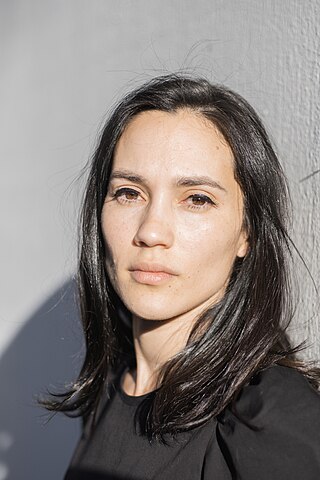
Lilliam Armijo is a Salvadoran poet and writer. She is the granddaughter of the poet Roberto Armijo.
LGBT literature in El Salvador consists of literary works written by Salvadorean authors that involve plots, themes or characters that are part of or related to sexual diversity. Until the 21st century, El Salvador did not have its own tradition of LGBT literature, although there were some representations of themes related to sexual diversity in previous years. One of the oldest was the verse story "La corrección de menores", published in 1923 by humorist Francisco Herrera Velado, which tells the story of a boy who is raised as a woman and lives in constant transition between the two genders. A similar character later appeared in the novel ¡Justicia, señor gobernador! (1960), by Hugo Lindo.